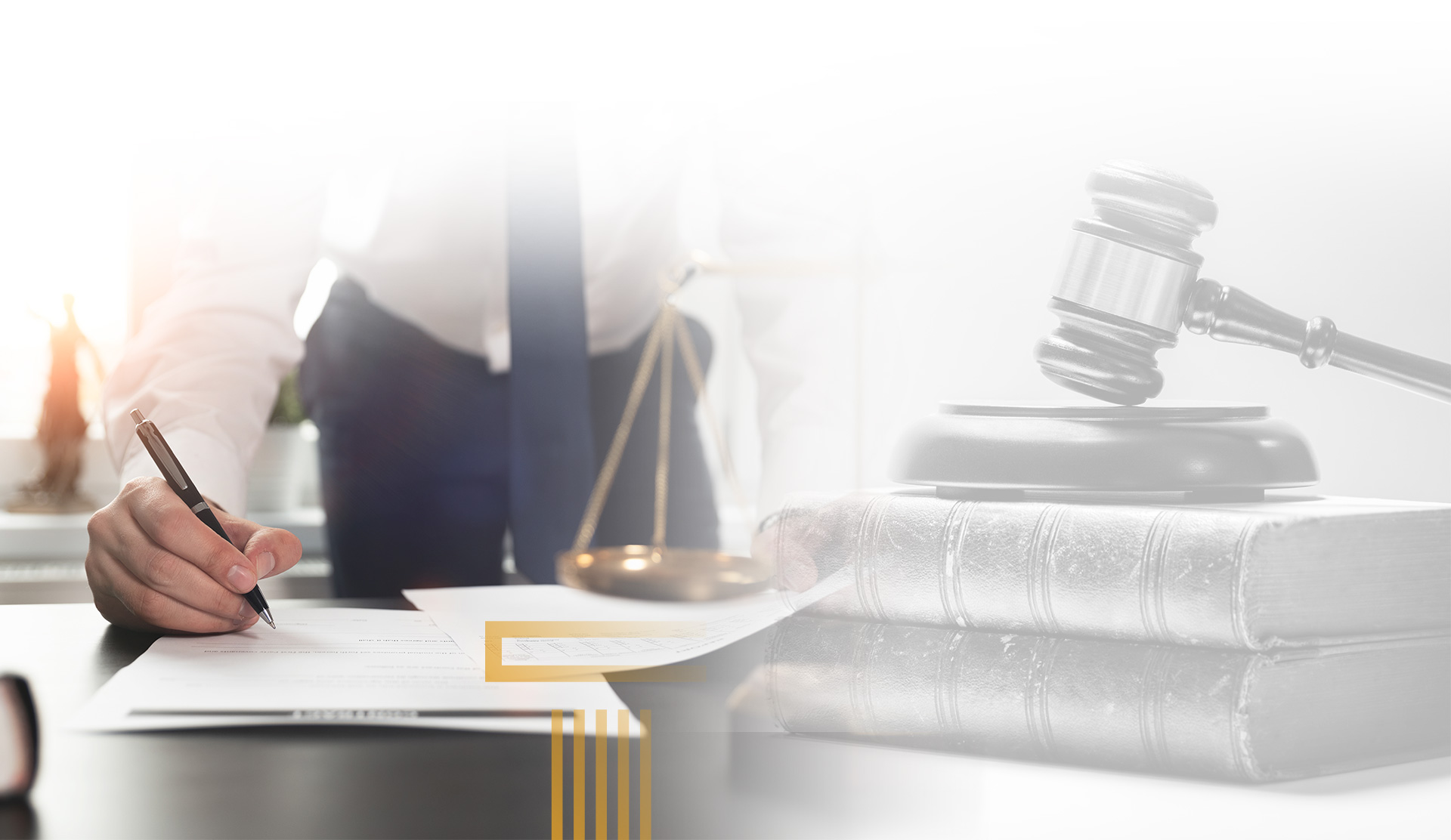
Workplace Accident Attorneys in Woodstock
Many thousands of employees are involved in work accidents in the U.S. each year. A significant number do not survive their injuries.
While the construction industry reports one of the highest levels of serious workplace injuries and deaths caused by falls, electrocutions, and being struck by falling objects, injuries can happen in any work environment. Employees in office settings may be involved in accidents due to slip and fall accidents or other circumstances.
Common Types of Workplace Accidents
Workplace accidents can happen in any environment. Here are some of the most common types:
- Slip and Fall Accidents: These are one of the most frequent workplace injuries, especially in offices, warehouses, and retail settings. Wet floors, uneven surfaces, and cluttered walkways can cause employees to slip, trip, or fall, leading to sprains, fractures, or head injuries.
- Machinery and Equipment Accidents: In industries like construction, manufacturing, and agriculture, workers are at risk of serious injuries from heavy machinery or faulty equipment. These accidents may involve crushing injuries, amputations, or burns from malfunctioning tools or machines.
- Motor Vehicle Accidents: Many workers drive trucks, delivery vehicles, or company cars as part of their job. Accidents while on the road—such as collisions or rollovers—can cause severe injuries, especially in high-speed or high-traffic areas.
- Exposure to Hazardous Materials: Some work environments involve exposure to dangerous substances like toxic chemicals, asbestos, or gases. Factory workers, lab technicians, and construction workers are especially vulnerable to illnesses such as respiratory conditions, skin diseases, or cancer due to prolonged exposure.
- Repetitive Stress Injuries: Jobs that require repetitive movements, such as typing, lifting, or using heavy tools, can cause long-term strain on the body. Common injuries include carpal tunnel syndrome, tendonitis, or back strain, which can be debilitating over time.
Are you the victim of a work accident? Contact our Woodstock workplace accident lawyers at (912) 304-5202 to learn how we can help. Hablamos Español!
Frequently Asked Questions (FAQ)
- Can I file a lawsuit if I receive workers' compensation benefits?
Yes, in certain cases. If a third party (such as a contractor, manufacturer, or property owner) is responsible for your injury, you may be able to file a personal injury lawsuit in addition to receiving workers' compensation benefits. - How do I know if my work injury qualifies for workers' compensation?
If your injury occurs while performing job-related tasks, you are generally eligible for workers' compensation. This includes both accidents and occupational diseases resulting from your work environment. It's important to report the injury to your employer and consult with a lawyer if you are unsure about your eligibility. - What should I do if my employer denies my workers' compensation claim?
If your claim is denied, you have the right to appeal the decision. Contact a workplace accident attorney to help navigate the appeals process and represent your interests before the Georgia State Board of Workers' Compensation. - How long do I have to file a workers' compensation claim in Georgia?
In Georgia, you must report your injury to your employer within 30 days of the accident. Failure to do so may affect your ability to receive benefits. After reporting, you must file your claim as soon as possible to avoid delays. - Can I still receive workers' compensation if I was partially at fault for the accident?
Yes. Georgia's workers' compensation system is a no-fault system, meaning you can receive benefits even if you were partially responsible for the accident. However, intentional injuries or injuries that occur while breaking company rules may not be covered. - What types of compensation can I receive from a personal injury lawsuit?
In a personal injury lawsuit, you may be eligible for compensation for medical expenses, lost wages, pain and suffering, emotional distress, and punitive damages if the defendant’s actions were particularly reckless. - How can I prove that a third party is responsible for my workplace injury?
Proving third-party liability typically requires gathering evidence such as accident reports, witness statements, expert testimony, and product safety records. A workplace injury lawyer can help you collect and present this evidence to support your claim.
Reach to our team online or call (912) 304-5202 to discuss your work accident case today, completely risk-free.
Workers' Compensation in Georgia
Workers’ compensation is a crucial protection for employees injured at work. Here’s an overview of the process in Georgia:
- Overview of the Georgia Workers' Compensation Law: In Georgia, workers' compensation provides benefits to employees injured on the job. It covers medical expenses, rehabilitation, and a portion of lost wages.
- How to File a Workers' Comp Claim: To file a claim, notify your employer immediately after the injury. Then, complete a claim form and submit it to the Georgia State Board of Workers' Compensation.
- Benefits Provided by Workers' Compensation: The system provides several types of benefits, including:
- Medical Treatment: Covers doctor visits, surgeries, and rehabilitation.
- Disability Benefits: If you are unable to work, you may receive compensation for lost wages.
- Rehabilitation Services: Physical therapy and other services to help you recover and return to work.
- What to Do If Your Claim Is Denied: If your claim is denied, it’s important to appeal. You can request a hearing before the State Board of Workers' Compensation to dispute the decision.
Third-Party Liability in Workplace Accidents
In some cases, a third party may be responsible for your workplace injury. Here’s how third-party liability works:
- Third-Party Responsibility: While workers' compensation covers injuries caused by your employer, it doesn’t cover injuries caused by third parties. These third parties could include contractors, equipment manufacturers, or property owners who are responsible for unsafe conditions.
- Examples of Third-Party Claims:
- Construction Accidents: If a subcontractor’s negligence caused an injury, they could be held liable.
- Defective Product Injuries: If a faulty piece of equipment caused your injury, you could file a lawsuit against the manufacturer or distributor.
Filing a third-party lawsuit can provide additional compensation beyond what workers' compensation offers.
When to File a Personal Injury Lawsuit
While workers' compensation is typically the first option, there are cases when a personal injury lawsuit might be necessary:
- Difference Between Workers' Compensation Claims and Personal Injury Lawsuits: Workers' compensation provides benefits regardless of fault, but it’s limited. A personal injury lawsuit, on the other hand, can offer higher compensation for pain and suffering, emotional distress, and other damages.
- When to File a Personal Injury Lawsuit: You may consider filing a lawsuit if the injury was caused by third-party negligence, defective equipment, or unsafe working conditions. For example, if a contractor’s negligence led to an accident, or if faulty equipment was involved, you could pursue a lawsuit outside of workers' compensation.
- Time Limits for Filing a Lawsuit in Georgia: In Georgia, personal injury claims typically have a two-year statute of limitations. This means you must file a lawsuit within two years of the injury, or you may lose your right to sue.

The Importance of Legal Representation
If you’ve been injured at work, hiring a lawyer is crucial, even if your workers' compensation claim is initially approved. Here’s why:
- Advocacy for Maximum Compensation: A skilled attorney can ensure you receive the full range of benefits you're entitled to, including compensation for pain and suffering, emotional distress, and lost wages that might not be adequately covered by workers' compensation.
- Preventing Lowball Settlements: Insurance companies often try to offer lower settlements to save money. Having an attorney by your side can help you avoid accepting these unfair offers and secure a settlement that truly reflects your needs.
- Handling Complex Claims: Workplace injury cases can be complicated, especially if third-party negligence is involved. An experienced lawyer can help navigate the legal system, gather evidence, and work with experts to build a strong case in your favor.
- Differences in Handling a Claim: Without legal representation, you may struggle with paperwork, meet deadlines, and understand the full extent of your legal rights. An attorney will ensure that all aspects of your case are properly handled, giving you peace of mind and the best chance for a successful outcome.


Contact us today for a free consultation with our highly skilled team!
